A Briefing Paper detailing the upcoming National Shipbuilding Strategy has estimated that the Type 26 Frigate will not begin until April 2017 at the earliest.
Manufacturing of the Type 26s was initially expected to start in 2016, confirmation of when the work will begin has still to be officially announced but we were told that it’s anticipated that the steel will be cut for the first Type 26 towards the end of the year.
According to the Briefing Paper:
“The Government has yet to agree a manufacturing date with BAE Systems. The programme is currently at the Demonstration stage.
This was extended in March 2016 for a year with a £472 million contract.
Manufacturing of the Type 26 was expected to begin around the middle of the decade and even in early 2015 the MOD was giving a date of 2016, with the first in class to enter service in 2022 in time to begin replacing the Type 23’s.
Manufacturing will not begin before summer 2017.
The programme moved from the assessment to the demonstration phase in April 2016. The demonstration phase was then extended until June 2017 with the signing of a 472 million contract in March 2016.
The MoD says a fixed date for the start of manufacture won’t be committed to until Main Gate. This is not expected to occur until the end of the demonstration phase. So far £1.8bn has been committed to the Type 26 programme.
BAE Systems is working on the assumption that the initial order will be for three hulls.”
RUSI analyst Peter Roberts suggests the reason for the continued delay to the build is not for design reasons but because the Type 26 budget is underfunded by around £750m this year.
 Despite alarming headlines, the Type 26 frigates have not been cancelled or “indefinitely postponed”. The claims come amid news that Type 26 Frigate contract will not be signed until it offers “value for money”.
Despite alarming headlines, the Type 26 frigates have not been cancelled or “indefinitely postponed”. The claims come amid news that Type 26 Frigate contract will not be signed until it offers “value for money”.
Unions have also insisted that there will be no redundancies as a result of uncertainty over the Type 26 build timetable on the Clyde.
Duncan McPhee from Unite said the contract was still guaranteed.
“There is guarantees. The main issue is the timetable, which is causing us the real problems and that has to be sorted out as soon as possible.”
Mr McPhee also added that BAE bosses were in negotiations with officials at the MoD to resolve the Type 26 Frigate build timetable issues:
“It means for jobs that we have the workforce geared up for this programme and that workforce will remain. It means that we are going to have to do a lot of things between the company and moving different work packages about, keeping people at Rosyth maybe for longer working on the aircraft carriers, maybe having to transfer people down to Barrow for the submarine programme so we will keep the jobs.”
Peter Roberts, Senior Research Fellow for Sea Power and Maritime Studies at RUSI has said referring to the commitment of the government to the Clyde:
“There is going to be a commitment, we see that from the government, of continued shipbuilding orders.”
A MoD spokesperson said:
“The Government is committed to building ships on the Clyde and to the Type 26 programme. over the next decade, we will spend around £8 billion on Royal Navy warship. as set out in the Strategic Defence and Security Review, we will build two new offshore patrol vessels on The Clyde, maintaining Scottish shipbuilding capability ahead of the start of the Type 26 build.
We will also consult with industry and trade unions as part of the national shipbuilding strategy, which will set the UK shipbuilding industry on a sustainable footing for the future.”
The SNP and others had said that any reduction in the number of Type 26 frigates being built on the Clyde would be a “betrayal” of the workforce.
All will be built in Scotland.
The crucial importance of Royal Navy shipbuilding contracts to the Scottish economy has been laid bare in a report commissioned by GMB Scotland.
An economic analysis of the Scottish defence sector by the Fraser of Allander Institute revealed that 5,943 jobs and £162.7 million in wages are supported by BAE’s yards on the Upper Clyde; and 3,870 jobs and £105.9 million in wages are supported by the Rosyth dockyard in Fife.
The report also presents a challenge for the Scottish Government to demonstrate how they would sustain these jobs and wages in the absence of MoD contracts in a future independent Scotland.
GMB Scotland Secretary Gary Smith said:
“This report was commissioned following the delays to the type-26 programme and because of the long-term frustrations felt by our members across the sector after years of being used as a political football.
One job on the Upper Clyde alone supports an additional 1.18 jobs across Scotland so for the future of Scottish shipbuilding and our long-term economic prosperity it is imperative that the UK government makes good on the promised frigate programme.
Furthermore, and with a second independence referendum a real possibility, the Scottish government needs to demonstrate to our members how they would plan to sustain their jobs, wages, pensions, skills and local communities without MoD investment.
This report is a reality check and shows that the fragile Scottish economy cannot do without the thousands of jobs and hundreds of millions of pounds in wages supported by navy shipbuilding contracts.”
The issue of UK naval contracts on the Clyde has become controversial after the 2014 Independence Referendum and even more so recently when several parties indicated that the work would not go to an independent country.
“No warships would have been built on the Clyde, because the United Kingdom Government would not have chosen to build them there.”
The full statement, confirming what many had already known, was made by then Minister for Defence Equipment, Support and Technology Phillip Dunne in response to a question from Brendan O’Hara, MP for Argyll and Bute, regarding the Type 26 frigates.
“What I can confirm to the hon. Gentleman is that, had the independence vote gone the way that he and his colleagues would have liked, no warships would have been built on the Clyde, because the United Kingdom Government would not have chosen to build them there; we made that very clear.
As it is, as I have just confirmed to the House, we will be proceeding with the construction of eight complex Type 26 warships on the Clyde as and when the programme is ready.”



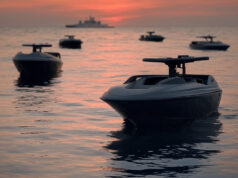


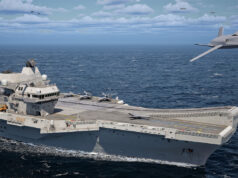

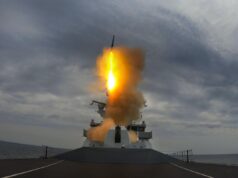
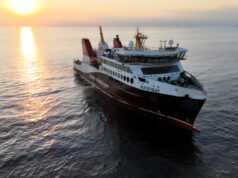
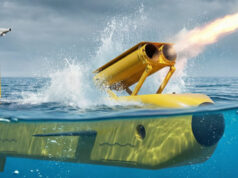
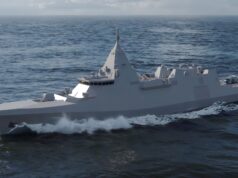

So basically the Treasury has been robbing the Defence budget to pay other bills and the Navy & the Scottish workers have to pay the price.
Assumption. It would appear the defence budget has been spent on other defence projects. The hesitation in my view was entirely centered around the Scottish referendum. If Scotland forces another through, and they get their way, then we will pull out entirely. Either Portsmouth will have to be retooled to be capable of ship building again, an expensive and time consuming process, or we go to Dame or someone in the Netherlands and get them to build the BAE designs. This will give us the 15 hulls we need as they build ships cheaper over there, where they are not forced to use British Steel. Britain will lose its ship building capability, but then we are too expensive to export anyway.
Do we want to keep the ability and reduce the navy, or export our orders and build up hull numbers?
When has it been any different ? The spending priorities of Westminster and the way they operate are disgusting.
Scottish workers certainly are not paying the bill, since scotland recieves more than its fair share of public money, so whereever the money is going, it is still heading to scotland. All the scottish crying over the construction is getting old.
However, maybe it’s time that the government started being a bit more honest about finances. If the new frigates can’t be afforded currently, then maybe it is better to look at life extension work of the existing ships and put off the big purchase for another decade until we can afford them.
i think with another referendum looking likely then it maybe delayed again until that outcome is known or cancelled altogether…as if the armed forces as a whole are not in a complete mess due to past and present governments cutting back left right and centre,what used to be the best military in the world even though we are small in comparison to other countries,the world looked upon us,now we are a laughing stock…we are getting close to the stage where we could not even defend ourselves…
I’d be tempted to put the whole construction process on hold until the SNP commit to not holding another referendum on independence for at least 10 years.
Scottish ship yards have been building fine vessels for the Royal Navy for many decades but there is no chance I’d be happy with UKr tax being used to construct Royal Navy equipment in an independent Scotland, unless there was mutual defence pact and funding between UKr and Scotland.
‘but there is no chance I’d be happy with UKr tax being used to construct Royal Navy equipment in an independent Scotland’
So you’re happy that the British taxpayer is funding four new 37,000 tonne Tide-class tankers being built in South Korea?
the tide class tankers are built to commercial spec when the contract was awarded not one UK tender put in a bid which is why South Korea got it…..so blame the UK yards not the government on that one….as for the first tanker it,s built and finished,but because we have a manning problem,ie lazy young people who want to play with phones all day we cannot man it,which is the same problem with the submariners because poor old little johnny can,t play on face book….makes me sick society has gone soft as anything….if we had a conflict like world war 1/2 who would volunteer to protect the country….hardly non i bet…they would all complain i can,t use facebook or other crap
British shipbuilding is a total mess. Portsmouth shipbuilding was sacrificed to blackmail Scottish voters to vote no to independence but it hasn’t worked; the SNP and Greens have been agitating for independence ever since. The brexit vote has only increased this agitation but it’s been going on since the “once in a generation” referendum. Meanwhile the Royal Navy is starved of new frigates while the type 23’s sail on well past their original out of commission date. Someone needs to show some backbone, resurrect English shipbuilding and order some ships.
The majority of those skills are enjoying retirement or other work now due to Portsmouth Naval Base shutting its fab hall.
I’m one of them, irony is that its probably the best thing that could have happened to me career wise
Vapourware.
I’d wager my mortgage that the construction will not start at any point in 2017.
[…] Manufacturing of the Type 26s was initially expected to start in 2016, confirmation of when the work will begin has still to be announced but we’re told that it’s anticipated that the steel will be cut for the first Type 26 in Q4 of 2017, this is backed up by a briefing paper. […]
i would not be surprised if it all changes depending on what Sturgeon does next after he meeting with the PM, May has already stated she will not e blackmailed,which is basicley what Sturgeon said that if she didn,t get what she wanted then the independance fight will be on……
[…] it’s anticipated that the steel will be cut for the first Type 26 in Q4 of 2017, this is backed up by a briefing paper and is no industry […]